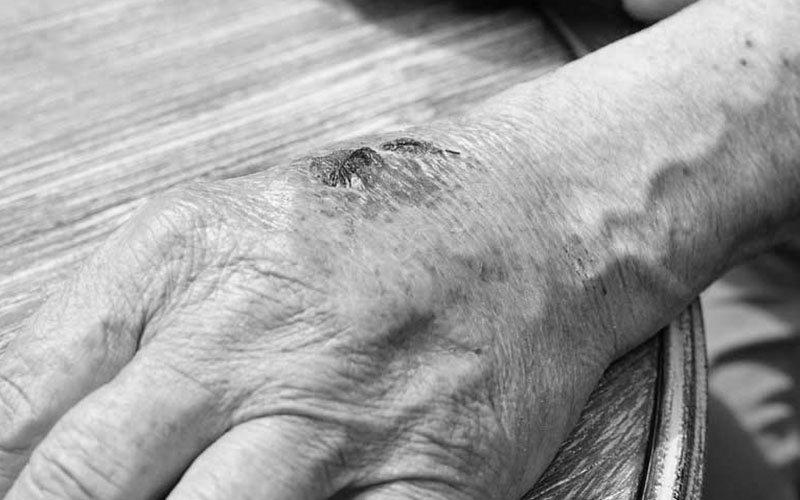
These regulations include the requirement that the nursing home must:
- turn and reposition a resident every two hours;
- perform regular skin assessments to monitor the condition of a resident’s skin;
- and develop a ‘Care Plan’ that addresses the risk factors of developing a bed sore.
When a resident has already developed a bed sore, or is at high risk for the development of a bed sore, the nursing home must promptly address this in the resident’s Care Plan and take measures to prevent the bed sore from occurring or worsening.
- repositioning and turning the resident more frequently;
- special nutrition and diet programs;
- air mattresses and other protective devices in order to relieve pressure on the bed sores;
- and in extreme cases a referral to wound care clinics so that the wound can be treated by specialists.
Unfortunately, all of these preventative measures require additional effort by the nursing home, which costs the nursing home additional funds. Staffing is one of the most expensive lines in a nursing home’s budget.
With the State of Oklahoma’s recent budget cuts, there are fewer and fewer inspections of nursing homes to ensure quality care. The results are predictable: a dramatic increase in bed sores among Oklahoma’s nursing home residents.
At Lloyd & Lloyd, we have decades of experience in litigating against nursing homes that allow their residents to develop bed sores. We know what questions to ask and what documents to obtain. Most importantly, we know how to show that in the majority of cases, the reason nursing home residents develop bed sores is because nursing home owners don’t provide sufficient resources to the nursing home staff to take care of the residents.
We have been able to use our experience to get results for our nursing home clients. We have recovered millions of dollars from nursing homes and nursing home owners, a large part of which was recovered for allowing bed sores to develop on residents.
SCHEDULE A CONSULT WITH THE LEGAL EXPERTS AT LLOYD & LLOYD
No family wants to face having to put a loved one into a nursing home. However, if it is necessary to take this step, the family deserves to know that the promises of the nursing home to take care of their parent(s) are true.
